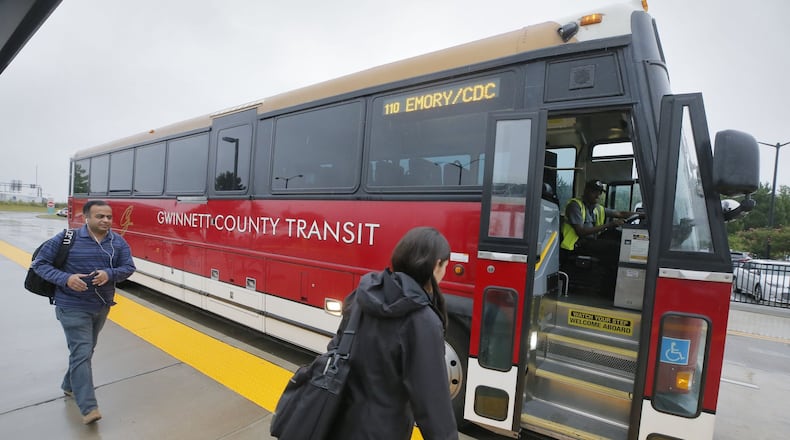Gwinnett County commissioners last week approved a $6.7 billion list of transit projects they could consider putting to voters, the next step in getting public transportation on the ballot in November.
The project list, which runs 10 pages long, next goes to the ATL board. Members will consider updates to the regional transit plan. Those changes need to be approved by the board before Gwinnett officials can ask voters to approve the funding to expand transit in the county. While commissioners have not said definitively that they will push for a vote in November, they remain on track for this fall.
The 94 projects on the list include everything from the expansion of heavy rail from the Doraville MARTA station into Gwinnett County to subsidies for rideshare services as well as bicycle and pedestrian improvements. There are more projects on the list than the county can afford under any sales tax option permitted by the state. The commissioners are describing the list they approved last Tuesday as a menu of options.
Namely, commissioners are undecided about whether or not to spend more than $1 billion to extend MARTA from Doraville to a new multimodal hub at Jimmy Carter Boulevard. If they do not, they can afford more frequent service on many routes. But they will also have to pay to connect bus rapid transit lines to MARTA connections in DeKalb County, which would increase the cost of those projects.
In a statement, Gwinnett County Commission Chairman Charlotte Nash said she thought the options would “help Gwinnett meet the transit challenges of the future.”
“With the growth and change expected in Gwinnett over the coming decades, it is critical that the county have flexibility to serve the evolving needs of the community,” she said.
The project list is based on work the Transit Review Committee did to look at the best transit options after voters last March rejected a proposal to expand transit through a plan known as Connect Gwinnett. The latest options would expand on that proposal, and include "aspirational" items from Gwinnett County commissioners, such as MARTA expansion to Gwinnett Place Mall.
If the ATL board approves the revisions, it will be the first time since the 16-member board formed in 2018 that the region’s transit plan will have been amended.
In addition to a number of bus rapid transit lines, the proposals include the expansion of paratransit service through more of the county, arterial rapid transit bus routes, more local service, new transit centers and park-and-ride lots as well as enhancements to existing bus stops and vehicles.
Nash said it will take "more hard work" to narrow down the project list to what the county can reasonably pay for, through a referendum and other means. But she said the commissioners will continue to discuss their options.
“While we acknowledge this entire project list cannot be funded at one time, it does provide us with a range of choices to meet Gwinnett’s transit needs,” she said.
About the Author
Keep Reading
The Latest
Featured



